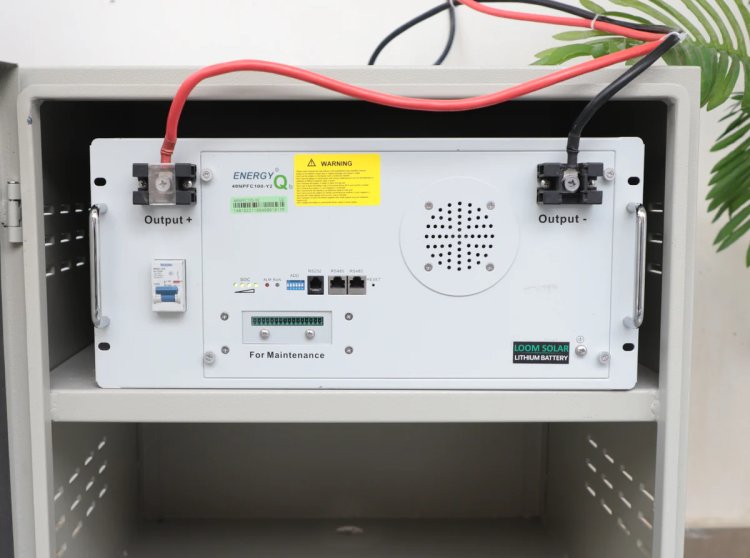Latest Technology Solar Battery in India
A solar battery is an energy storage device that stores excess electricity generated by solar panels...
Share this Post to earn Money ( Upto ₹100 per 1000 Views )

What is a solar battery?
A solar battery is an energy storage device that stores excess electricity generated by solar panels. It allows homeowners and businesses to use solar power during the night or when the sun isn’t shining, reducing reliance on the grid and increasing energy self-sufficiency.

Types of solar batteries?
There are mainly three types of batteries:
1. Solar battery
2. Lithium battery
3. Non-solar battery or inverter battery
Latest Technology Solar Battery in India
Solar battery (150Ah to 200Ah): A solar battery with a capacity of 150Ah to 200Ah is a specialized energy storage device designed for solar power systems. It efficiently captures and stores excess electricity generated by solar panels for later use, especially during nighttime or cloudy periods. These batteries are typically lithium-ion, known for their high energy density, longer cycle life, and quick charging capabilities. Their larger capacity makes them suitable for residential and commercial applications, offering extended backup power or increased self-sufficiency.
Lithium battery (5kWh): A 5kWh lithium battery is an advanced energy storage solution. The 5kWh capacity strikes a balance between power needs and cost-effectiveness, making it suitable for homes seeking to maximize self-consumption of solar energy, reduce reliance on the grid, and provide backup power during outages. Its compact size and advanced technology make it a popular choice for modern energy management systems.
Non-solar battery or Inverter Battery (150Ah): A 150Ah non-solar battery, typically lead-acid, is a standby power source used for backup electricity supply in areas with unreliable grids or during blackouts. These batteries are known for their durability and affordability but have drawbacks such as limited cycle life, slower charging rates, and maintenance requirements compared to newer lithium-ion alternatives.
Conclusion: In summary, various battery types cater to diverse energy storage needs. Lithium batteries stand out with their high efficiency and versatility, suitable for a wide range of applications. Solar batteries are specialized for optimizing solar power utilization. Non-solar batteries, such as lead-acid, provide affordable backup power but with limitations like shorter lifespans. To find the best solar battery you have to keep in mind some factors like cost, capacity, and application. As technology evolves, lithium-ion batteries increasingly dominate due to their longer life, quick charging, and energy density, making them the preferred choice for most modern energy storage solutions.

















